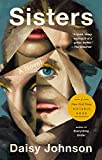Tuesday, August 30, 2022
INTERIOR CHINATOWN by Charles Yu
Tuesday, August 23, 2022
HAPPY & YOU KNOW IT by Laura Hankin
Tuesday, August 16, 2022
SISTERS by Daisy Johnson
Tuesday, August 9, 2022
GILDED MOUNTAIN by Kate Manning
“’Today Bowles made the union an
offer of air and threw in daylight as a bonus.’”
Sylvie enjoys some wordplay of her own, inventing the word
“underdonkey” and adding her own unspoken comment in a conversation with George
on page 359:
“’Hackles!’ He slapped his thigh. ‘You’re a stitch, Sylvie
Pelletier.’
I was a stitch. A dropped stitch, which results in a great
unraveling.”
Speaking of stitches, Sylvie can’t help laughing at George’s jokes, and neither could I. At times this novel feels like a Cinderella story, and I could have done without the hints of future tragedies on the horizon. Sometimes I think authors, including this one, convey a sense of foreboding as a way to soften the blow when the hammer eventually falls. I would prefer to be surprised, especially by bad news. Sylvie herself, however, is what makes this novel special. She occasionally falters in the common sense department, especially when it comes to matters of the heart, but her commitment to justice, particularly for the underdonkey, never wavers. Thank you to Book Club Favorites at Simon & Schuster for the free copy for review.




